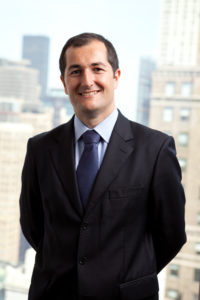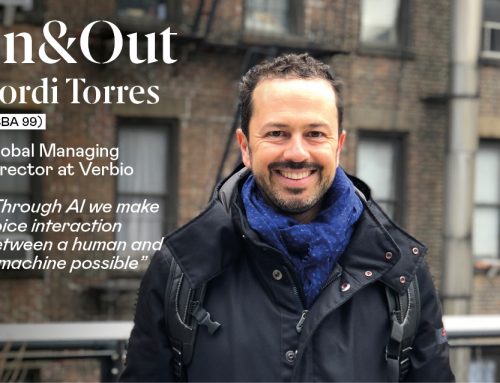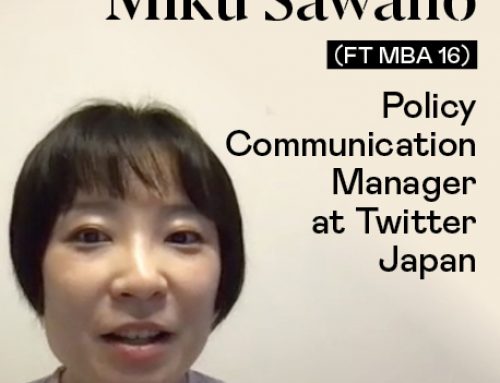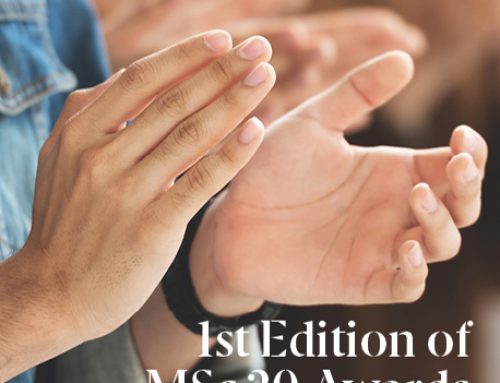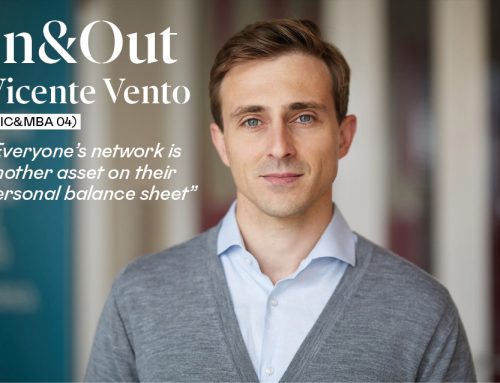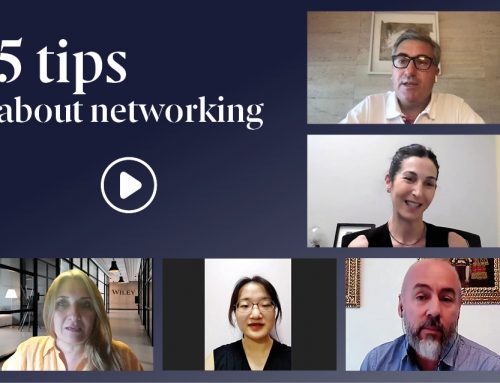Daniel Landaluce (Lic&Master 99), Director of Tax Policy for the Americas at Huawei
Daniel Landaluce oversees the company’s tax policy in the Americas (USA, Canada, and Latin America). This includes tax strategy and ‘advocacy’ in fiscal matters, managing relations with senior civil servants and legislators who are responsible for tax policy. He also represents the company in international forums and organisations where changes to tax legislation at a global level are decided.
-As Director of Tax Policy for the Americas at Huawei, what are the challenges in your career?
This is an exciting job that requires extensive knowledge of the domestic tax issues of each country, as well as global tax matters which are crucial for the future of multinational companies, particularly in the technology industry, such as the issue of how to tax the digital economy and the desire of some countries to redesign the international taxation system, which has been in place for over a century. In addition to having the technical knowledge, you have to be able to interact with government representatives who sometimes have a radically different perspective to that of the business world. What’s more important, you must be able to communicate complex ideas effectively.
-Previously, you worked for 16 years in international tax at PwC in Spain and the USA, most of that time based in New York. What did this Chapter in your career mean to you?
International tax is an exciting field, which is key in an increasingly globalised world with a high demand for qualified professionals. In my case, I was presented with the opportunity to work abroad, first in Luxembourg for two years, then in New York for 8 years, and most recently in Silicon Valley. I always wanted to live and work abroad. On a personal level it is a very rewarding experience and professionally it really does give you that extra edge. Fortunately, my line of work allowed me to do just that. I would like to point out that, in recent years, the field of tax has become even more important. In part, this is due to the risks affecting large corporations relating not just to the tax burden, but also to their reputation. For this reason, never before have tax strategies and risks been discussed so much at the highest level in companies. Today, international tax is a key part of the discussions at the C-Suite.
-What led you to move from the world of consultancy with the Big Four to a Chinese multinational technology company in California?
When I was presented with the opportunity to lead this area regionally in a company that, despite not having been around for that long (barely 30 years), is the global leader in telecommunications infrastructure and the third largest company in the mobile phone market (this year, we also reached the position 56th in the ranking of the world’s largest companies), it seemed a great opportunity. What makes the company’s leading global position so unique is the fact that it is a Chinese multinational, a country which has undergone unprecedented economic and technological growth over the last decade. Today China is a leader in research, development and innovation, a reality that completely dispels the image of a country that only produced things of little value and copied technology. China’s economic boom and government policies designed to increase its international influence (for example, the Belt and Road initiative) are creating a new geostrategic reality in which China and its multinationals will continue to grow and expand, competing with the USA for global economic leadership, particularly in the field of technology.
-What made you take the international leap from Barcelona to New York? you were the president of the ESADE Alumni Chapter in New York. What did you get out of this experience?
New York is the financial centre of the world and working there is a fantastic experience. For me, one of the main advantages was being able to develop a large network of professional contacts. Needless to say, all the big players in business and policy pass through New York. Something I discovered is that networking is extremely important and almost a science in the USA. In my case, I also had the chance to be on the board of directors and be Vice President of the Spain-US Chamber of Commerce , the most important private organisation promoting business relations between the two countries, which headquarters are in New York. I was also President of the ESADE Alumni Chapter, one of the most important and active chapters in the network. My involvement in both organisations gave me access to leaders in business and politics, as well as the opportunity to create invaluable personal and professional relations.
-You have been in Silicon Valley for a year and a half. What professional and personal opportunities does the region offer?
Silicon Valley is a key driver in the US economy. The transformation of the region thanks to the boom of the technology companies based in the valley (e.g., Facebook, Google, Apple, and many others) has been extreme, especially over the last decade. There is an impressive ecosystem of entrepreneurs, researchers, and professionals from all different backgrounds that make this region truly prosperous. Silicon Valley offers infinite career opportunities and a culture that is very different from the rest of the country. However, this growth has also created challenges for San Francisco and Silicon Valley: the cost of living has shot up (mainly due to housing costs) making it almost impossible to live there if you are not earning a 6-figure salary. This has led to an exodus of residents (mainly those who do not work in the technology sector, such as teachers) and an increased difficulty to attract talented individuals, many of whom are now opting for other areas that offer lower salaries, but also lower living costs and less crowded spaces. On top of all this, more and more entrepreneurs are choosing Shenzhen (China’s Silicon Valley) to launch their projects, where they find very similar talent and synergies at a much lower cost.
-You have an undergraduate and master’s degree in law from ESADE and lectured in ESADE’s MBA programme until you moved to the USA. What has ESADE done for you and your career?
ESADE has been very important for me – it provided me with an outstanding education, has opened many doors , and has connected me with key people throughout my career. I was a student in the very first class to graduate from the Law Faculty, so you might say we were kind of guinea pigs. However, the outcome exceeded all my expectations . We have had the privilege of having outstanding deans who have helped to shape this new faculty. The current Dean, Eduardo Berche, is breathing new life into ESADE’s Law Faculty, which I’m sure will take it from strength to strength.

